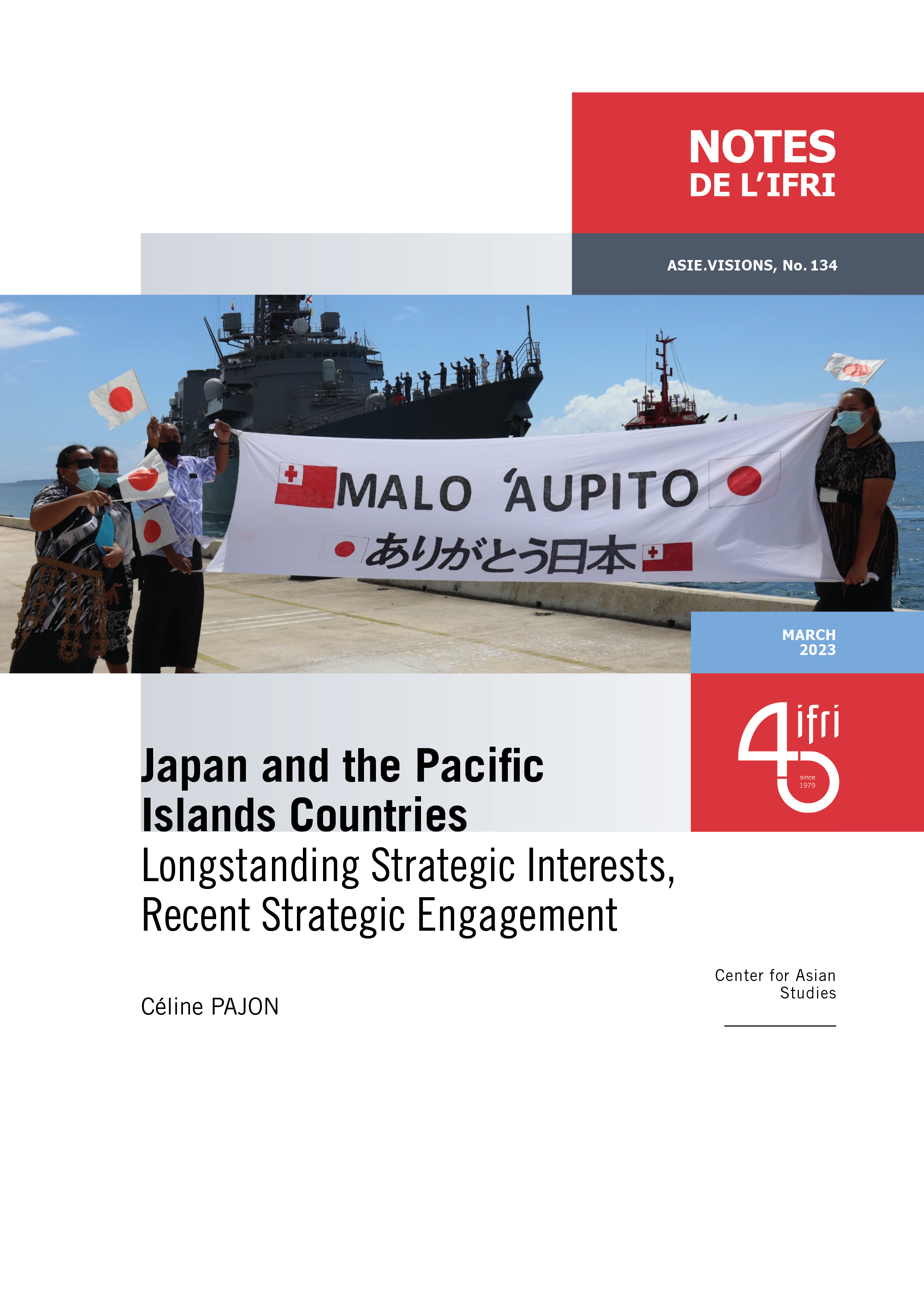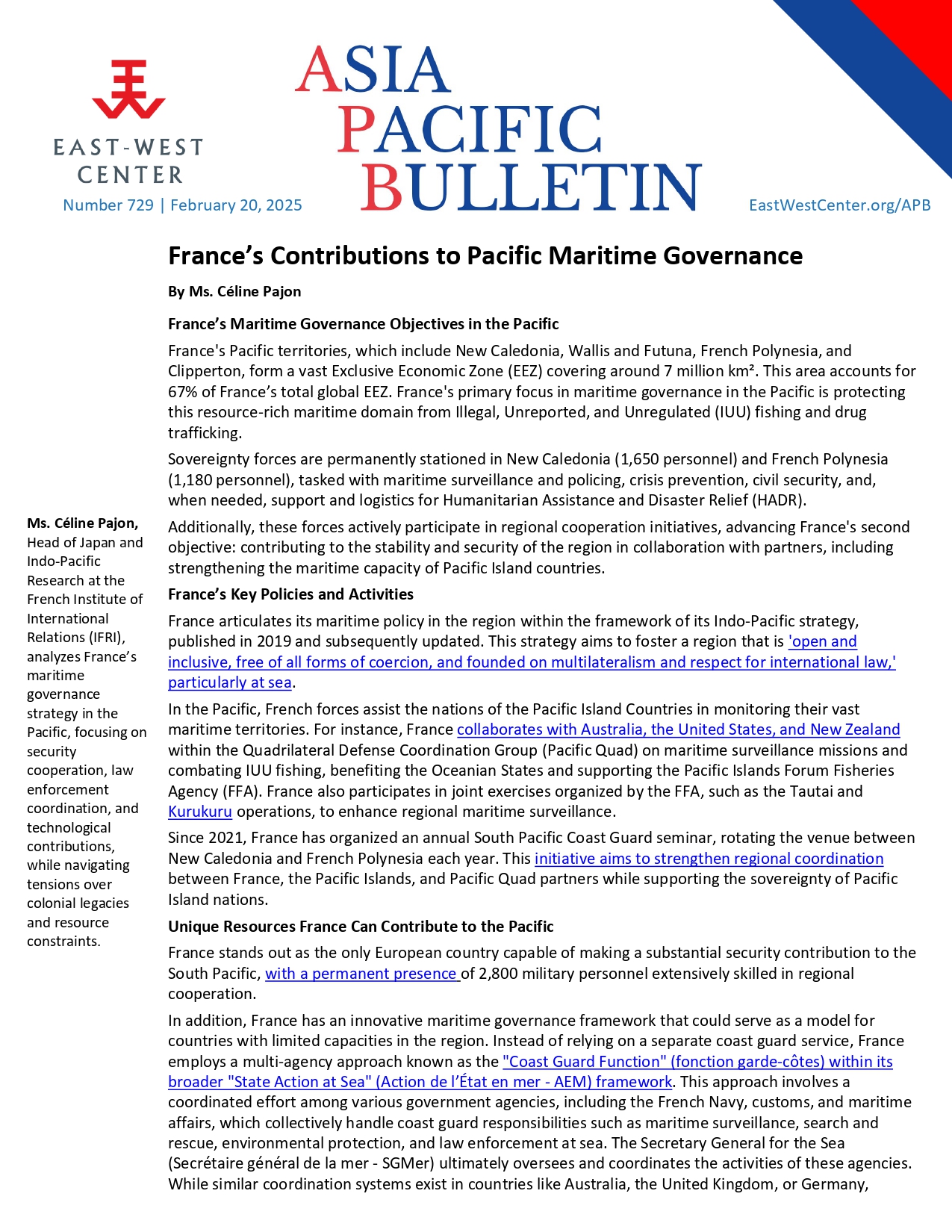Japan and the Pacific Islands Countries. Longstanding Strategic Interests, Recent Strategic Engagement

The wealth of these territories in fishery resources and raw materials, the crucial importance of the maritime routes, and the strategic geographical location of PICs in the context of Sino-American rivalry have been key factors behind Tokyo's expanding engagement.
Despite these strategic interests, the cooperation with the PICs in the postwar era up until the emergence of the Indo-Pacific narrative has been quite fragmented, reflecting the rather low priority given to the region, the multiplicity of the objectives pursued, and the diversity of engaged actors. Nevertheless, the Japan-Pacific Islands Leaders Meeting (PALM) process initiated in 1997 provided an innovative multilateral framework to coordinate with the Pacific Islands Forum (PIF) over economic cooperation, improve Japan’s communications and iron out tensions, starting with nuclear.
The incorporation of the PICs into Japan’s Free and Open Indo-Pacific (FOIP) vision cements their position in Tokyo’s efforts to preserve a rules-based international order and counterbalance China’s growing influence. Security issues of Asia have thus started to appear on the agenda of the PALM Summits. In addition, Japan has stepped up its cooperation with its closest allies and partners – the US and Australia – as part of the operationalization of a FOIP in Oceania. Finally, a major provider of development aid, Tokyo has also become a diplomatic and security partner for the Pacific Islands. Japan has stepped up naval diplomacy and defense dialogues in the region, in addition to being very active in maritime capacity-building, as well as humanitarian aid and disaster relief assistance.
Despite the rise of Japanese cooperation, which is now truly multidimensional and strategic, Tokyo's ability to influence the Pacific islands and in particular to counterbalance China remains to be seen. Indeed, the PICs feel little concerned by major geopolitical projects and are careful not to create enemies.
With the US and its other partners increasing their presence in the area, there is a strong impetus for Japan to reinvest in the Pacific. However, Tokyo has yet to develop a formal strategy or vision for the region. This could be announced at the next PALM summit in 2024, which will mark the 10th iteration of this meeting and could be a significant milestone.

Available in:
Regions and themes
ISBN / ISSN
Share
Download the full analysis
This page contains only a summary of our work. If you would like to have access to all the information from our research on the subject, you can download the full version in PDF format.
Japan and the Pacific Islands Countries. Longstanding Strategic Interests, Recent Strategic Engagement
Related centers and programs
Discover our other research centers and programsFind out more
Discover all our analysesJammu and Kashmir in the Aftermath of August 2019
The abrogation of Article 370, which granted special status to the state of Jammu and Kashmir (J&K), has been on the agenda of the Bharatiya Janata Party (BJP) for many decades.

France’s Contributions to Pacific Maritime Governance
France stands out as the only European country capable of making a substantial security contribution to the South Pacific, with a permanent presence of 2,800 military personnel extensively skilled in regional cooperation.
Unlocking India’s Energy Transition: Addressing Grid Flexibility Challenges and Solutions
India is rapidly scaling up its renewable energy (RE) capacity, adding 15–20 GW annually, but the ambitious goal of 500 GW of non-fossil capacity by 2030 is at risk unless the pace accelerates.

The China-Russia Partnership and the Ukraine War: Aligned but not allied
China and Russia maintain a strategic partnership rooted in shared opposition to the U.S. and liberal democracies, but their relationship is shaped more by pragmatism than trust.










